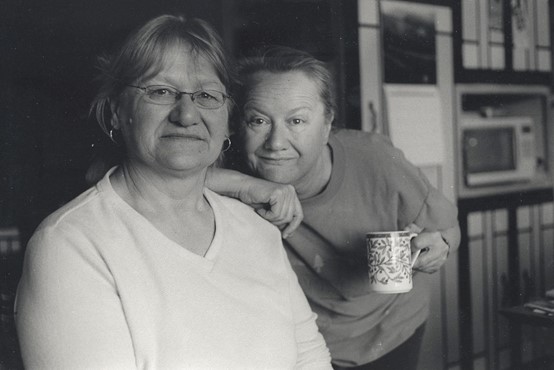I Know What She’s Thinking—or Do I?

If we don’t think alike, we’re not twins; if we’re not twins, who are we? I only know myself and you through the twinship lens. How can I tolerate a perspective that no longer matches what I believe to be true? I need you to think like me, otherwise we’re not connected. If you don’t think like me, you cannot value, appreciate, or love me. How can we stay connected if we do not see eye to eye? If not, I am alone—the pipeline has gone dry, my cup is empty. I feel so lost and abandoned. I am estranged from myself and from you.
These are the sentiments of twins who come to the upsetting realization that their connection is not what they believed it to be. I had a similar revelation in psychotherapy several years ago. For many complicated reasons, I always assumed that my twin thought about issues the same way I did. After sharing an event with my therapist and telling her I was certain that my twin reacted the same way, my therapist asked, “How do you know for sure?”
I replied, “I just know.” As we continued our discussion, it dawned on me that I had no clue how my sister actually felt. I simply made an assumption and projected my thoughts and feelings onto her.
Until that moment, I had no reason to doubt my convictions. My twincentric perceptions habitually shaped my impressions and opinions. My ironclad presumption that my sister’s thoughts were identical to mine formed my reality. Even though I felt very separate from her in terms of family, friends, and lifestyle, it never occurred to me that I unknowingly believed I knew exactly what she was thinking.
This revelation helped me become more self-aware and understand why so many twins suffer when they discover this incongruous communication. Psychological intervention with twin pairs has to be done on an intrapsychic level. Many twins need help to see that their sibling is different from the person they imagine her to be. Naturally, many twins are frightened to acknowledge these differences because they may create a rift in the relationship.
Ironically, such rifts about differing perceptions often lead to problematic outcomes. This situation forces twins to face their personality differences and understand each other as authentic individuals. To confront these differences, one must dissect the myths of perfect accommodation, unconditional soulmate love, and undying loyalty. In doing so, one’s singular voice and sense of self can be redefined and redirected. Hopefully, these changes will nurture a realistic, rather than imagined, reciprocity.
Image courtesy of Kelsea Groves (CC BY-ND 2.0)


Hi thank you for these newsletters they are very helpful!
Thnx once again for your insightful writing. I’m an identical mirror image twin. My sister and I are indeed opposites on many levels. We are both from the USA and our presidential political candidates are opposite. She and I are aware of our differences of opinion. We never talk politics for the reason we choose to “not get into it.” But we recently did have a text chat conversation that was long overdue. It was fascinating to witness from afar what we were doing, texting over each other, not having the time to even comment on the other’s thoughts/opinions. I finally stopped and wrote “Sis, I love you. I respect you.” She answered the same and then we continued on for another 10mins. The whole exchange took about 20mins. I value this experience with her, so I can practice the same tolerance, non judgment attitude and just listen to her points of view. This is a a skill and something I can use for many of my Facebook contacts. So I’m grateful to her for giving me this valuable experience.
This dynamic is definitely a big complication in my twin relationship. It seems that differences of opinion, tastes or interests are viewed as a ‘criticism’ — simply because they differ.
As we moved out into the world, our tastes and interests naturally began to diverge. This caused some confusion and recalibration. And while I obviously have no objectivity, it seems that we reached a point where this became untenable for my twin, though much less so for me.
To this day, if my twin is very into something — and I’m not, he seems to get defensive and/or tries to persuade me to like it. For example:
We developed different taste in music, yet for years he sent me music that he’s into, but I’d long grown out of. And he seemed to get irritated/hurt when I failed to endorse what he liked. I genuinely think he thought that that we still ‘agreed’ about music, and that I was just taking a contrarian position.
But as Joan’s post underscores, no two people (twins or otherwise) have identical thoughts, tastes, opinions. And while it doesn’t bother me a bit if he has different tastes/opinions than mine — it still seems really upsetting to my twin. Even a completely neutral response from me seems to be viewed as an implicit criticism — simply because it’s not enthusiastic agreement.